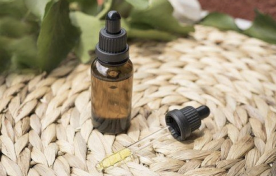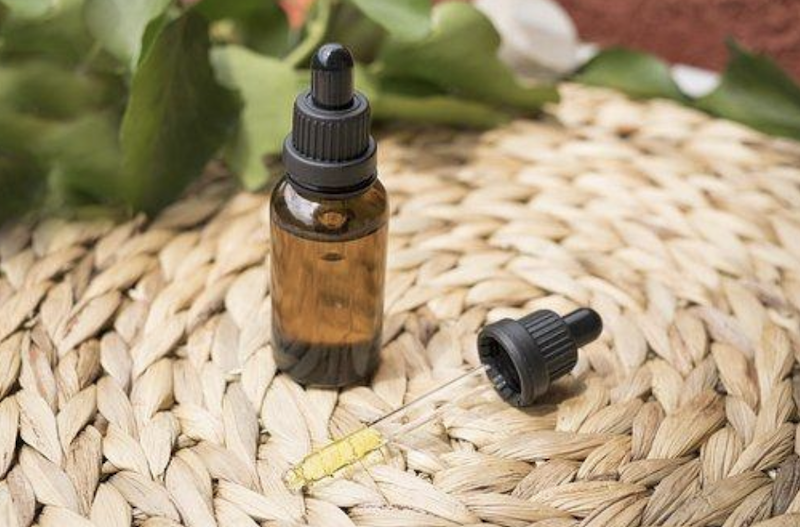If there’s one alternative medicine product whose popularity doesn’t seem to go away, it’s got to be CBD oil.
CBD oil may have begun as a passing fad. However, the compound has witnessed a steady surge in demand as more people continue to acknowledge its potential therapeutic benefits.
But what is CBD oil, and why is there so much buzz around it?
Well, this article shall try to give perspective to those and other frequently asked questions about CBD oil.
Photo Credit: Pixabay.com
What Is CBD Oil?
CBD oil has become a common sight on the shelves of many supplement stores worldwide. Indeed, a subtle online search is all it takes to get your hands on premium-quality CBD oil by some of the world’s renowned suppliers like CannaOne.
But before we explore the benefits and effects of CBD oil, it’s best to back up a bit and understand what this substance is all about.
CBD is an abbreviation for cannabidiol, a therapeutic chemical that exists naturally in the cannabis plant. The compound has witnessed an explosion in popularity in the recent past due to its diverse pharmacological benefits.
Now, CBD oil refers to special oil extracted from cannabidiol. It typically contains cannabidiol as the core active ingredient, alongside a carrier oil such as hemp seed oil and sunflower oil.
What Is The Difference Between CBD Oil and CBD Tincture?
As you continue to explore the cannabidiol market, you’ll realize that CBD oil and CBD tinctures are strikingly similar. So much so that some retailers prefer to use the two terms interchangeably.
However, CBD oil and CBD tincture are fundamentally different. The only similarity between them is that they have cannabidiol as their primary active chemical.
As already stated, CBD oil is typically a blend of cannabidiol and a carrier oil. On the other hand, tinctures are commonly formulated with CBD and suitable high-proof alcohol, such as ethanol.
The difference between CBD oil and CBD tincture also relates to their delivery methods.
CBD oil may be taken orally by swallowing a few drops of the substance. Some users also prefer adding it to their regular cooking oil, herbal tea, milkshake, dessert, or batter. On the other hand, the most popular way to consume CBD tincture is by dropping it underneath the tongue and then swallowing it.
It’s also worth noting that cannabidiol is primarily available in oil form. That explains why “CBD oil” may denote any CBD product, including non-liquid supplements like gummies.
Photo Credit: Pixabay.com
What Are The Health Benefits Of CBD Oil?
Like all cannabidiol-infused products, CBD oil has demonstrated remarkable efficacy against pain. The compound relieves pain by desensitizing specific endocannabinoid receptors, such as the vanilloid receptor.
CBD oil may also alleviate inflammation. That’s due to its ability to decrease the production of inflammatory messengers like cytokines and chemokines.
Medical marijuana doctors also recommend cannabidiol oil for stress and anxiety. Studies have established a relationship between CBD intake and high blood levels of serotonin.
Serotonin is one of the main chemicals associated with happiness and positivity. Low levels of this neurotransmitter correspond with intense feelings of worry. In fact, anxiety is commonly treated using a class of serotonin-boosting antidepressants known as selective serotonin reuptake inhibitors (SSRIs).
CBD oil provides benefits over regular SSRIs in that it poses lower risks of adverse effects. Besides improving the serotonin signal, the compound may also address stress and anxiety by reducing the production of the stress hormone cortisol.
Photo Credit: Pixabay.com
Research also points to cannabidiol’s potential efficacy against insomnia and other sleep disorders. CBD oil treats insomnia by shortening the duration of rapid eye movement (REM) sleep.
REM sleep is the last stage in a sleep cycle, marked by intense dreaming. People who spend longer time in REM may have sleep-disrupting nightmares, especially those already suffering from post-traumatic stress disorder (PTSD). Therefore, shortening REM sleep duration using interventions like CBD oil might improve sleep by reducing the number of bad dreams.
Another piece of research on CBD’s benefits for sleep cites the compound for its ability to treat REM sleep behavior disorder. REM behavior disorder, or RBD, is a sleep disorder marked by the unconscious dramatization of dreams. It’s one of the most common triggers of sleep deprivation.
Those grappling with erectile dysfunction (ED) may also consider CBD oil. The compound treats ED by stimulating blood circulation throughout the body, including the sexual organs. This results in stronger and longer erections.
Nausea is yet another common health condition treatable using CBD oil. The compound’s antiemetic properties are largely attributed to its positive effects on ‘feel-good’ neurotransmitters.
There are plenty of other medical conditions that you can treat using cannabidiol oil, including epileptic seizures, diabetes, and even some cancers.
Will CBD Oil Get Me High?
One of the frequently asked questions about CBD oil relates to its potential psychedelic abilities. Well, it’s great to know that pure CBD won’t get you high.
CBD’s non-psychoactive properties are due to the fact that it generally impacts a group of endocannabinoid receptors located in peripheral organs and tissues called CB2 receptors.
That’s in contrast to tetrahydrocannabinol (THC), which mainly affects CB1 receptors that are widespread in the brain and central nervous system (CNS).
Photo Credit: Pixabay.com
Wrap Up
There’s so much to learn about cannabidiol oil. However, we hope this post provided the fundamental facts about this novelty drug.
Remember that CBD laws vary across the world. So, understand what the local regulations say before using the compound.























